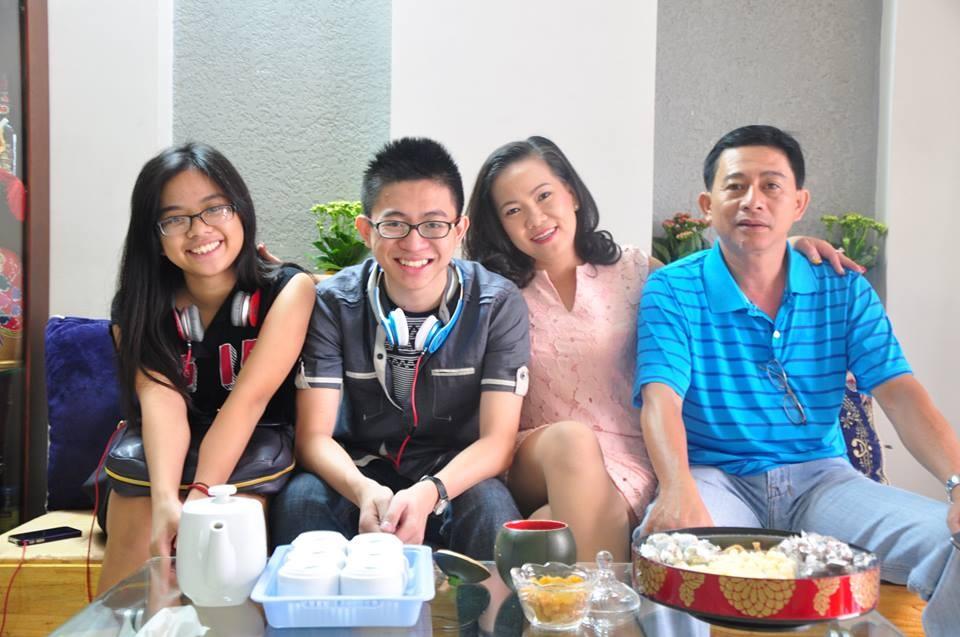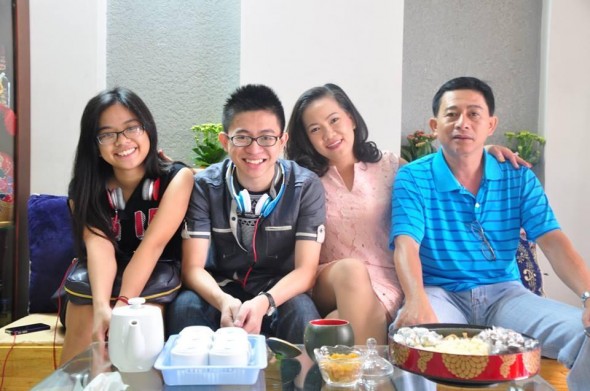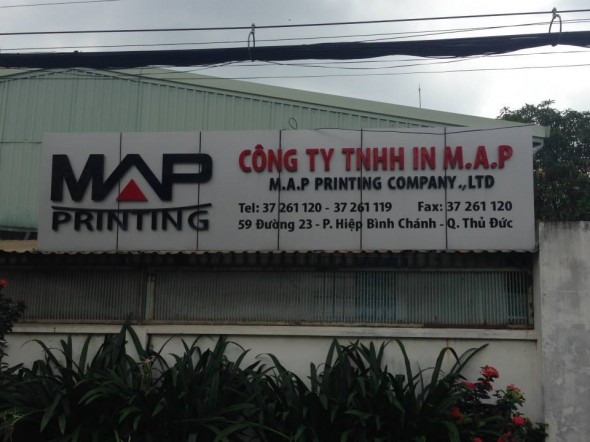
The tale of two trades
Success depends upon previous preparation, and without such preparation there is sure to be failure.
Confucius, the most noted educator and learned man of China once uttered this phrase in his wise and sagacious manner.
Reading this line for the first time made me think profoundly about life and how I could achieve such enlightenment without turning into a man stroking his long white beard. I never quite grasped just how vital this one phrase could impact the business structure of one country throughout a lifetime following the “Confucianism” lifestyle. On the one hand, Confucius is a man of virtue with his faith set strong on the foundations of keeping a family connected throughout the generations. On the other, his three virtues of humanity, intelligence and courage expose his belief of hard work equalling happiness to the common man. How can a single individual stroll through the pulsating work life within the strong communist walls of Vietnam and adequately follow all of Confucius’ teachings? Must a man choose his path of business: family politics or the cold corporate circle?
The economic philosophy of ‘Doi Moi’ was adapted in 1986 to fulfill the notion of increasing the country’s contribution to the global market community. The belief of reconstructing the economy means liberating businesses to continue their work and uphold the moral beliefs and convictions their company was first built upon. Doi Moi ultimately pushes trades to accept the global market and embrace the economic theme of a socialist driven country. Freeing the ability to take control and charge of your own business and building revenue is easier said than done. The thin line between professional accountability and family orientated liability begins to blur. Raking in the money or raking in the trust of customers is the dangerous coin business partners flip and close their eyes to; hoping for a middle ground to appear.
The bottom line is: which companies are thriving and which are still struggling utilising the communist or Confucian philosophy? To decide, I entered into a heated boxing match. In one corner stood the big proud typhoon of printing and advertising and in the other, the humble furniture business standing upon a throne of family values.
Let’s first meet Phuong Nguyen; dedicated worker and dedicated daughter at the printing and advertising business, M.A.P. Starting the adventure in 1994, (under the Trade Service Corporation) her father first planted the seeds of the corporation 20 years ago in Ho Chi Minh City: “The company has become well-known due to my father upholding the reputation of being an innovative and updated business. However, from the start, the government did not allow any private printing business to operate by its own,” Ms Nguyen said, raising her eyebrows in mutual incredulity. “It has still been running for 21 years now and I have been working there for six days a week over the last four years.”
With the government keeping its watchful eye on the company, M.A.P supplies for the leading clients around the country, updating the market on new advertising trends every year: “It’s good to have a network with widely recognised individuals, corporations such as P&G, Coca-Cola, Mead Johnson,” she said.
“We are viewed as a professional establishment and I enjoy knowing my clients as well as contributing towards the economic growth of the country. To keep the company updated and original, we constantly create new products and services in the market and train new staff every year. This upholds the quality of our work in general.”
The boxing match seems to be a tight fight with the corporate colossus chiming in a fair point; breaking the original mould and adapting to the ever-evolving lifestyle in Vietnam increases the sphere of customers. This links nicely to a small story by the one and only Confucius: “If I am walking with two other men, each of them will serve as my teacher. I will pick out the good points of the one and imitate them, and the bad points of the other and correct them in myself.” Learn from what worked and what didn’t and improve upon it, all for the sake of the business name, the money and answering to the big man himself (and no I don’t mean Confucius this time). The communist approach and Confucius’ words slowly begin to form one train of thought and one ideal business plan.
Comparing the two opposing forces of family-owned corporations and professional businesses is not an easy feat, even when both trades seem to sit underneath the same umbrella of Doi Moi principles and Confucianism ideology: “We are definitely viewed as a more professional business outlet as we are constantly building our working model from other developed countries.” Ms Nguyen excitedly explained.
“More and more well-known businesses in Vietnam are embracing the idea of having a CEO from a foreign country. This consequently means that Vietnamese company owners are more willing to learn and accept the business trends and management methods from across the world. Customers are now viewing family-owned businesses as less-professional and close-minded establishments. Their working style is the complete opposite to what we try to achieve within M.A.P: a hard-working, professionally recognised organisation that clients around the country can count on.”
What a blow! But Ms Nguyen gave her opponent a breather at half time, commenting further that although working within a busy corporate lifestyle is rewarding and financially firm, family-run businesses do have their strengths in other areas: “Decision-making within businesses is a huge factor to consistently keep on track in not only Vietnam, but across the globe. When making decisions in a family-owned company, it is much faster and easier than in the corporate organisations,” she said matter of factly.
“We have to go through many levels of management within the company system and this can result in very long waiting periods until a decision about a printing job or new equipment is reached.”
The flaw in the seemingly perfect establishment is discovered. Reaching a consensus becomes a chore as those in the higher departments must nod their heads in approval before making a hasty decision. And what is this all for you ask? Why complicate the decision-making process? “Money is usually considered as one of the most important factors in business within Vietnam,” Ms Nguyen pointed out. “However, I believe what is even more important is the management skills that are developed throughout the years at a company.”
“Even though we have some family relations within M.A.P, we would never let a client know about the relationships we have with one another. In the end, family businesses are not recommended partners to have if you want to establish a successful and well-organised business. The working style and management process we promote is a purely professional one therefore we don’t see ourselves as a family-run business. We are professionally created and professionally seen as a corporation clients can rely on.”
As the professional worker puts her punching gloves away, we now move into the red corner of the “family comes first” business lifestyle of Tuan Hoang’s parents, and their bedroom furniture company venture. The struggle and story of creating income to survive is one of sad truth: “In the first few days, my parents had to buy their products cheaply and sell them at a high cost in small quantities until they finally reached their money goal. And what was the end objective? To buy a sewing machine!” Tuan said laughing slightly.
“Hoang My Tran didn’t have its name established in Ho Chi Minh City until years later as it was purely a business to make end’s meat. It was a difficult process to have the company up and running where clients came to us regularly for their furniture needs.”
For 21 years the Hoang family continued to build the reputation and name of Hoang My Tran and for 21 years, their business relied upon the mantra of “it does not matter how slowly you go, as long as you do not stop.” Tuan upheld this belief from the very start, working at the company in every school holiday since he was six years old. His young eyes witnessing the development and management of the business throughout this time: “There are huge differences between the big chain stores and family companies. In Vietnam, most family-owned companies have a cooperation model which means that promotion is limited to family members,” he explained in amusement.
“Although, the approach that my parents introduced was that all employees are treated as part of the family. Everyone belongs in the company and therefore there are less family politics that take place at work.”
The red corner begins to move and rise up slowly from the ground, proving that resilience and fair treatment is how a business moves together as a whole. A united force that doesn’t need a hierarchy of bosses and a game of power play. Looking at the city as a whole, Ho Chi Minh is a force to be reckoned with, becoming a host for growing industrialised government owned companies and modernised Confucius based family trades.
“Ho Chi Minh is ahead of its time, industrialisation has become central and skilled workers are beginning to move to the cities and leave their home life behind,” Tuan said with sadness in his eyes. “Their lives are not enhanced enough and modernisation becomes a necessity for most business entrepreneurs.”
However, as Tuan continues his story, it becomes clear that trust is the binding force that separates the two opposing professions. It is a notion that does not need to be paid for or earned through professionalism, it is something that is fostered through personal connections and created over time.
“A company as big as Tan Hiep Phat let’s say, which is the Vietnamese soft drink empire, are strictly run by employees who have been loyal to the establishment from the very start and must sign documents worth millions of dollars proving on paper their loyalty,” Tuan incredulously describes. “Within the family business life, trust is not just written on some piece of paper, it is expected and respected within the relationships you make. I was born and raised by my parents who by themselves developed something completely unique and original and I will continue to carry on the business no matter what.”
To measure the success of anything in life is to surely look upon the outcomes and conclusions. For the big chain stores in one corner, success is measured in monetary values and management breakthroughs. For the other business down the road, in the small alleyway between a fruit shed and a hardware store, their success is based on what rewards others have received: “In my eyes, my parents are very successful. I mean they are now able to buy a few properties for my older relatives to retire to and they have provided me and my sister an education and a chance to study abroad,” Tuan explained as a broad smile covered his face.
“People these days are completely satisfied with just a roof over their heads and a plate of food in front of them and what’s wrong with that? You don’t have to be rich to be ambitious and you don’t have to own a large chain store to be happy. I am proud with what my parents have achieved and the legacy I will someday carry on that is Hoang My Tran.”
Coming back to the original question of who is thriving and who is struggling in the Vietnamese business world, what can I say? Both put up a pretty good fight! It is the long debate of a corporate communist trade versing a family-owned Confucianism business and who will continue their achievements in the future and who will fall. From entering the lives of two opposing businesses from different ends of the spectrum and understanding their ways of making money, losing money and building trust, I can safely say that no business formula is truly the right one.
Vietnam is growing and companies most certainly need to adapt but originality is sometimes lost, hindering the purpose of the business from the start. Maintaining order is a must and losing credibility and trust is something that can’t be brought back to life. Balancing the philosophy of Confucius and the ideology of communism may just be the answer but who can say? I can only leave you with this quote to sit on whilst stroking that long knowledge-filled beard when weighing up how success can lead to happiness in the fighting working life of Vietnam: “The strength of a nation derives from the integrity of the home.”




